The modern professional landscape is more demanding and dynamic than ever before. As tasks pile up and workloads increase, stress levels rise, leading to difficulties of ‘too much to do and too little time.’ Overwhelming becomes a common sentiment, the feeling that you’re up against insurmountable challenges in our fast-paced, evolving world.
Acknowledging this reality, time management transcends beyond merely ticking off to-do lists. It encapsulates a profound understanding of work patterns, identifying distractions, prioritizing tasks, tackling procrastination, and consistently improving productivity.
Our exploration journey into advanced time management strategies not only equips you with tools to streamline your workload but also empowers you to transform the very outlook of your professional life. Delving deeper into advanced time management can empower you to work smarter, not harder, freeing time for personal growth and peace.
Utilize The Power Of A To-Do List
A To-Do List is one of the best time management tools that modern professionals and students alike can utilize. It is apt for project management and can be easily customized to cater to both personal and professional settings.
- Time-Blocking Technique: Assign specific time slots for each task on your list. This efficient time management concept helps you to focus solely on one task during its designated time and prevents multitasking, which often leads to poor time management.
- Prioritize Tasks: Not all tasks were created equal. The most successful time management techniques suggest prioritizing tasks based on urgency and importance. This technique helps you to manage your time better and ensures that you use your time effectively and efficiently.
- Set Measurable Goals: Setting time limits for each task can dramatically improve time management and productivity. It gives you control of your time, avoids procrastination, and ensures that there is enough time in the day for both important tasks and leisure activities.
- Review and Re-evaluate: This step is crucial for different time management strategies. At the end of the day, review the tasks that were not accomplished and understand why. This exercise forms the crux of effective time management tips and helps improve productivity.
By embracing the to-do list, you not only improve the time you spend on tasks but also enhance ways to manage your time effectively. As simple as this tool might be, mastering it unleashes successful time management. Remember, time management is the process of working smarter to enhance productivity.
Prioritize — Perform The Important And Urgent Tasks First
Effectively prioritizing tasks is a key component in successful time management. By focusing first on tasks that are both important and urgent, you make better use of your time and boost your overall productivity.
- Utilizing the Time Management Matrix: This tool categorizes tasks into four quadrants based on urgency and importance. This matrix will help you focus on tasks that need immediate attention and plan for those that do not require instant action but are still critical.
- Setting Time for Prioritization: At the end of the day or the start of the new day, dedicate some time to evaluate and rank tasks on your to-do list. This way, you can control your time and deliver tasks efficiently and effectively.
- The ‘2-Minute Rule’: If the task takes less than 2 minutes to be done, do it immediately. This rule helps you spend less time on minor tasks and increases your productivity by addressing straightforward tasks instantly.
- Focus on High-Value Activities: To better manage your time, focus on tasks that contribute significantly to reaching your objectives. This time management habit helps in optimizing the time spent and getting meaningful work done swiftly.
By understanding how to ingeniously prioritize and distinguish between what needs your immediate attention and what doesn’t, you manage your time effectively, leave room to relax, and ensure that the time you spend results in maximum productivity.
Remember, excellent time-management skills are about working smarter, not harder. It requires constant evaluation, but the improved productivity and enhanced control over your time are well worth the effort.
Do One Task At A Time (Monotasking)
The art of monotasking, often overshadowed by the allure of multitasking, is a valuable time management habit that can revolutionize how you manage your time. Focusing on a single task allows you to channel your resources efficiently, which leads to a considerable increase in the quality of your work and overall productivity.
Monotasking is about fully dedicating your time and attention to a single task. Instead of juggling multiple tasks simultaneously and diluting your focus, you control your time by working on one concern before moving on to the next. This, in turn, reduces the time required to complete each task since your attention isn’t fragmented.
Your to-do list should include tasks that require undivided attention and are best accomplished through monotasking. By setting specific time blocks for each of these tasks, you optimize the time at hand. The Pomodoro Technique is an excellent example of this approach, where you break your work into 25-minute intervals (Pomodoros) with some time to relax in between – a proven way to manage time effectively.
Creating your own time management system, where monotasking is central, helps you keep track of tasks, create dedicated time slots, and prevent burnout. Monotasking allows the time necessary to give your best to each project, scheduling time accordingly. This ability to manage your time accordingly leads to improved efficiency.
By adopting monotasking, you’ll discover both an increase in productivity and quality of work and find that you’re spending less time stressed and more time being effective. So, focus on one task at a time and see the difference it makes to your productivity.
Set Measurable Goals And Time Limits
Establishing measurable goals coupled with time limits is a practical approach to time management that can greatly enhance your ability to manage your time and ensure the quality of your work. Whether the tasks are for personal time or professional pursuits, measuring progress and setting deadlines makes managing time and balancing work more manageable.
A method to make this work is to leverage tools and techniques like the Pomodoro Technique. Breaking your work into 25-minute intervals, also known as ‘pomodoros,’ allows you to concentrate entirely on one type of work at a time, enhancing your focus and reducing the time required for tasks. After each ‘Pomodoro,’ a short break is taken, reducing the risk of burnout and decreased productivity.
Creating your own time management system is yet another way to keep track of your goals. Such a system could encompass tasks that require specific time allocation, with dedicated time slots for each based on their importance and urgency. This scheduling will help you prioritize your work and give you a clear picture of what needs to be done and when.
Every task you need to accomplish should be written down. This will serve as a visual reminder of your tasks and help you manage your time better. It also aids in creating a balance between work commitments and personal interests, empowering you to maximize productivity and enhancing your capabilities in managing your time. With practice, these methods can significantly improve your aptitude for managing time effectively.
Delegate Important Tasks To Team Members
Effective time management often involves learning to share your workload wisely. Delegating tasks to others allows you to focus on tasks that need your attention. Besides, it paves the path to better teamwork and frees up multiple slots on your to-do list.
Here is how to make it work:
- Delegate important tasks to improve time management and enhance work quality.
- Focus on tasks requiring your expertise while assigning others to skilled team members.
- Prioritize work based on importance and urgency to understand which tasks to delegate.
- Create a time management system that specifies the time required for crucial responsibilities and includes delegation.
- Use tools and techniques, such as project management software, to facilitate delegation and progress tracking.
- Delegation maximizes productivity and allows team members to improve their skills.
- Avoid decreased productivity by not juggling too many tasks simultaneously and delegating when appropriate.
- Understand that not every task needs to be done yourself to manage time more efficiently and improve team performance.
Remember, delegation isn’t about evading your responsibilities but about maximizing productivity and making the best use of available resources. It gives team members the chance to improve their skills and frees up their time to focus on other essential tasks.
Moreover, delegation can reduce the risk of decreased productivity brought about by trying to juggle too many tasks at once. By understanding that you don’t need to do everything yourself, you can manage your time more efficiently and improve the overall performance of your team.
Cut Out The Distractions For Time Management
We live in times where distractions are plentiful and just a click away. Developing the discipline to separate from disturbances helps manage time effectively. Dedicating a particular workspace or time frame for distraction-less work will be a game-changer in your time management skills.
Effective time management strategies suggest keeping these distractions to a minimum to ensure you spend your time on tasks efficiently.
- Focus on One Task: Multitasking may sound like a good time management tool, but in reality, it can lead to wasted time and reduced productivity. Instead, focus on one task at a time to maintain focus and ensure the quality of your work.
- Prioritize Your Tasks: One of the most significant time management tips is prioritizing tasks. Using a to-do list can help you visually comprehend your tasks, set time limits, and classify which tasks are important and urgent.
- Manage Distractions: Understand what your common distractions are and delegate a specific time to indulge, ensuring they don’t take over your entire workday.
- Work Smarter: Leveraging time management skills includes learning to work smarter, not harder. This includes focusing on measurable, specific tasks that yield the highest rewards.
- Reduce Procrastination: Unnecessary procrastination can turn even the simplest task into an important one, which wastes your time and could be used elsewhere. Employing methods to reduce procrastination can be highly beneficial in increasing productivity.
Avoid repeatedly checking emails or social media as these can distract your attention and lead to unnecessary time wastage. Staying focused on what needs to be accomplished not only helps to complete one task but also aids in effective time management by freeing up resources for other daily tasks.
By cutting out distractions, not only do you manage time more efficiently, but you also reduce stress caused by constant interruptions, making you more productive and satisfied with your work output.
Maintain Focus And Stay Resilient
Stay focused and determined, even when faced with setbacks. Taking regular breaks to recharge, sticking to your to-do list, and readjusting strategies where necessary are a few ways to stay resilient in the face of challenges.
One of the primary time management skills is staying focused on the task at hand. While it might be tempting to multi-task, evidence shows that tackling one task simultaneously leads to more significant productivity and less time wasted. This can be achieved by setting time limits or using a management tool like a to-do list. Such tools not only help prioritize tasks but also enable the focus on one task at a time, thereby improving efficiency and work quality.
Resilience is another fundamental aspect of effective time management. Dealing with daily tasks and unforeseen challenges often involves adapting your schedule and overcoming obstacles. When facing such challenges, it pays to maintain a resilient attitude. A resilient approach can help reduce stress and prevent succumbing to procrastination, a common issue that can derail your time management efforts.
Remember, the goal of effective time management isn’t to fill every moment with a task but to ensure that you spend your time effectively and productively. Despite distractions, unexpected tasks, or important and urgent tasks that may arise, staying focused and resilient can help balance your time effectively.
By consciously planning how you spend your time, you’re not merely reacting to what comes up. Instead, you’re proactively managing time, allowing you to work smarter, not harder. It’s a step that demands practice, but with time, you can manage time more efficiently, maintain focus on your tasks, and stay resilient in the face of challenges.
Why Should Professionals Explore Time Management Skills?
Effective time management is a crucial skill that all professionals should harness. It’s more than just being punctual. It’s about being efficient and effective while balancing the various demands on your time. Here are some compelling reasons why professionals must manage their time effectively.
Greater Productivity And Efficiency
One of the clearest benefits of effectively managing your time is increased productivity. By organizing your tasks according to their priority and the amount of effort they require, you can significantly increase your output. Efficiency reduces the time wasted on unnecessary tasks and streamlines your workflows.
Here’s how:
- Project Management: Efficient time management is crucial in successful project management. It ensures enough time in the day to complete various tasks and control your time effectively.
- Better Manage Your Time: Time management techniques, such as time blocking, can help you better manage your time and increase productivity. It involves dedicating specific time to individual tasks.
- Time Management Tool: Tools and techniques such as the Time Management Matrix can help you evaluate and prioritize your work based on importance and urgency. This is a step towards working smarter to enhance productivity.
- Setting Time: Creating a to-do list should include scheduling a dedicated time for each task. This approach gives you control of your time and helps you manage your time effectively.
- Reviewing and Improving: Time management is constantly evaluating and adjusting your methods. Techniques that work for some may not work for others, hence the importance of different time management strategies and the need to create your personal time management methods.
Always remember, successful time management is about making better use of your time to accomplish more, not just being busy.
Enhancing Career Success And Time Management Skills
Time management plays a pivotal role in fostering career success. The ability to manage time efficiently is a skill that many employers value; thus, it can significantly differentiate you in a highly competitive professional landscape. Here’s how superior time management contributes to career success:
1. Achievement of Goals
Successful professionals are often those who have a clear vision of their goals and the steps to achieve them. Effective time management aids in setting clear, achievable goals and tracking progress towards them, thus translating to greater success in your career.
2. Skill Demonstration
Time management skills indicate a high level of organization, responsibility, and focus—all traits of an effective leader. When you efficiently manage your time, it demonstrates to your superiors that you possess these desirable qualities and can handle greater responsibilities.
3. Reliability and Dependability
By managing your time effectively, you become more reliable and dependable, consistently meeting your deadlines and delivering high-quality work. This reliability can enhance your professional reputation and open paths for career development.
4. Increased Value to the Team
When you are successfully managing your time, it positively impacts the entire team. Not only can you meet your responsibilities, but you also free up time to assist others, provide input, and participate more actively. This higher involvement contributes to the team’s success and increases your organizational value.
5. Continual Learning and Growth
Time management includes prioritizing professional development and learning. By setting aside dedicated time for these activities, you can continually improve, adapt, and develop new skills, making you more competitive in your field.
By leveraging time management, professionals can reach their career goals faster and with less stress. It not only provides short-term benefits of productivity and reduced stress but also contributes to long-term career growth and satisfaction.
Lower Stress Levels And Balance Life
A more subtle yet equally important reason for managing time well is reducing stress levels. When you are constantly rushing to meet deadlines or feeling swamped by tasks, stress can become a routine emotion. However, by managing your time effectively, you can reduce the pressure and create a more relaxed work environment.
The work-life balance is a difficult equilibrium to achieve, particularly in high-pressure jobs. Effective time management can lead to a better balance since you are more aware of your workload and how to accommodate personal time. This opens up opportunities for rest, relaxation, and personal development.
Improved Decision-Making Abilities
Being able to manage your time effectively frees up space in your schedule. This unexpected free time can be used to pursue opportunities you would usually not have the time for – like learning a new skill, networking, or even starting a side-project.
When you’re not in a rush, you have more time to think through your options, resulting in better decision-making. Hastiness is a pressure-induced reaction and can lead to regrettable choices in the workplace.
Indeed, effective time management not only enhances your professional life but also improves your overall well-being. By mastering your time, you stand a better chance of leading a fulfilling and balanced life. Therefore, practicing time management strategies should top the priority list of every modern professional.
Productivity Apps To Work Smarter For Professionals
There are various productivity and time management apps available to assist you in keeping on top of tasks. These productivity apps are becoming essential tools for managing workloads, facilitating seamless collaboration, and enhancing overall productivity. Here are several recommended apps that modern professionals should consider:
1. Asana
Asana is a project management tool designed to help teams organize, track, and manage their work. Features include setting task deadlines, delegating duties, and visualizing project progression.
2. Trello
Trello utilizes a board-and-card system that allows easy organization and prioritization of projects. It’s a flexible tool that can suit various workflows and team sizes.
3. Slack
Slack is a communication platform designed for team collaboration. It reduces email clutter, enables file sharing, and facilitates team interaction through channels and direct messages.
4. Microsoft To-Do
Microsoft To-Do is a simple and effective task management app. It allows you to create to-do lists, set reminders, and plan your day for increased productivity.
5. Evernote
Evernote is an app designed for note-taking, organizing, and archiving. It provides an easy way to capture and store ideas, meeting minutes, or information from the web.
6. RescueTime
RescueTime provides insight into how you spend your time on devices. It tracks time spent on apps, websites, and breaks and offers detailed reports, allowing you to manage your digital time better.
7. Zoom
Zoom is a video conferencing tool suitable for hosting meetings and webinars. It facilitates remote collaboration, making it essential for remote teams or professionals who often work from home.
8. Google Drive
Google Drive offers cloud storage and file backup for photos, documents, and more. It facilitates collaboration by allowing real-time editing and commenting on shared files.
9. LastPass
LastPass is a password manager that securely stores passwords. It helps reduce the time and the stress of retrieving forgotten passwords.
10. Focus Keeper
Inspired by the Pomodoro Technique, Focus Keeper helps you keep your productivity high and prevent burnout with a timer system. Break work into 25-minute intervals separated by short breaks. Remember, the right tool can simplify your work processes, improve productivity, and free up more time for relaxation and personal growth.
Mastering these advanced time management strategies requires practice and patience. However, by adapting and incorporating these methods into daily life, you would realize the enormous potential to reduce stress, increase productivity, and, ultimately, transform the way you manage your professional endeavors.
The goal isn’t just to manage time but to make time work for you!!





0 Comments